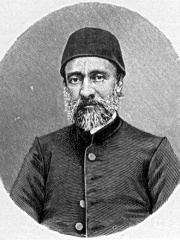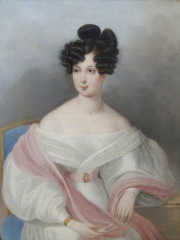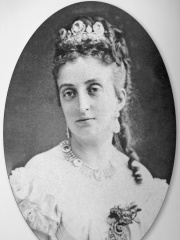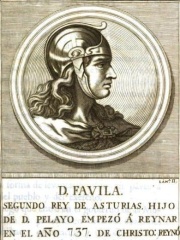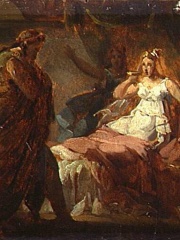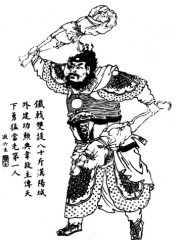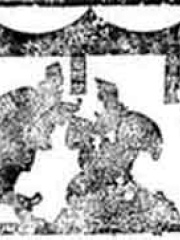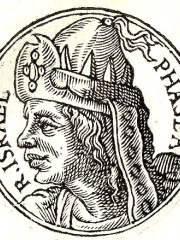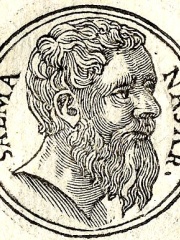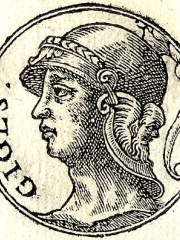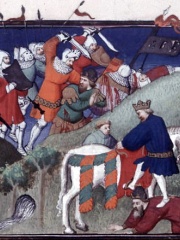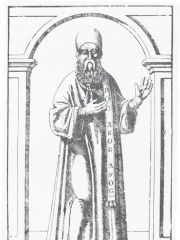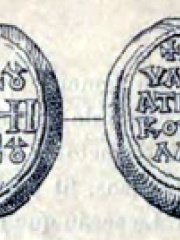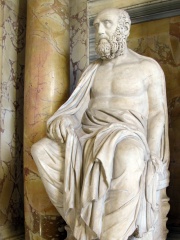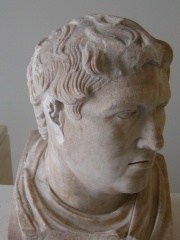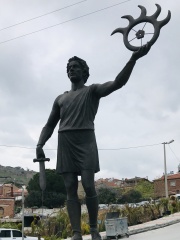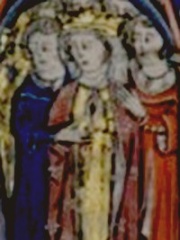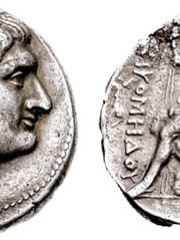Politician
Sarduri II
790 BC - 735 BC
EN.WIKIPEDIA PAGE VIEWS (PV)
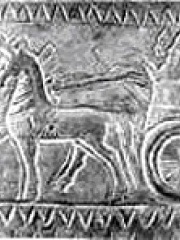
 Sarduri II
Sarduri II
His biography is available in 29 different languages on Wikipedia (up from 26 in 2024). Sarduri II is the 5,173rd most popular politician (down from 4,043rd in 2024), the 498th most popular biography from Türkiye (down from 412th in 2019) and the 259th most popular Turkish Politician.
Sarduri II is most famous for its pottery.
Memorability Metrics
Page views of Sarduri II by language
Among Politicians
Among politicians, Sarduri II ranks 5,173 out of 19,576. Before him are Mehmed Emin Âli Pasha, Countess Claudine Rhédey von Kis-Rhéde, Princess Marie Isabelle of Orléans, Favila of Asturias, Emperor Go-Horikawa, and Sophonisba. After him are Dian Wei, Hōjō Tokimune, S. Jaishankar, Andrius Kubilius, Dieter Wisliceny, and Duke Huan of Qi.
Most Popular Politicians in Wikipedia
Go to all RankingsMehmed Emin Âli Pasha
1815 - 1871
HPI: 66.33
Rank: 5,169
Countess Claudine Rhédey von Kis-Rhéde
1812 - 1841
HPI: 66.33
Rank: 5,170
Princess Marie Isabelle of Orléans
1848 - 1919
HPI: 66.32
Rank: 5,171
Favila of Asturias
715 - 739
HPI: 66.32
Rank: 5,172
Emperor Go-Horikawa
1212 - 1234
HPI: 66.32
Rank: 5,173
Sophonisba
300 BC - 203 BC
HPI: 66.32
Rank: 5,174
Sarduri II
790 BC - 735 BC
HPI: 66.32
Rank: 5,175
Dian Wei
150 - 197
HPI: 66.32
Rank: 5,176
Hōjō Tokimune
1251 - 1284
HPI: 66.32
Rank: 5,177
S. Jaishankar
1955 - Present
HPI: 66.31
Rank: 5,178
Andrius Kubilius
1956 - Present
HPI: 66.31
Rank: 5,179
Dieter Wisliceny
1911 - 1948
HPI: 66.31
Rank: 5,180
Duke Huan of Qi
800 BC - 643 BC
HPI: 66.31
Rank: 5,181
Contemporaries
Among people born in 790 BC, Sarduri II ranks 4. Before him are Pekah, Shalmaneser V, and Gyges of Lydia. After him are Tyrimmas of Macedon, and Archelaus of Sparta. Among people deceased in 735 BC, Sarduri II ranks 1.
Others Born in 790 BC
Go to all RankingsPekah
POLITICIAN
790 BC - 732 BC
HPI: 69.10
Rank: 1
Shalmaneser V
POLITICIAN
790 BC - 722 BC
HPI: 69.03
Rank: 2
Gyges of Lydia
POLITICIAN
790 BC - 700 BC
HPI: 68.42
Rank: 3
Sarduri II
POLITICIAN
790 BC - 735 BC
HPI: 66.32
Rank: 4
Tyrimmas of Macedon
POLITICIAN
790 BC - 700 BC
HPI: 62.92
Rank: 5
Archelaus of Sparta
POLITICIAN
790 BC - 760 BC
HPI: 62.25
Rank: 6
Others Deceased in 735 BC
Go to all RankingsIn Türkiye
Among people born in Türkiye, Sarduri II ranks 498 out of NaN. Before him are Anna of Trebizond (1350), Andronikos Doukas (1006), Bülent Ersoy (1952), George Pachymeres (1242), George Syncellus (800), and Mehmed Emin Âli Pasha (1815). After him are Hieronymus of Cardia (-390), Artabasdos (700), Aelius Aristides (117), Stratonice of Syria (-317), Philetaerus (-340), and Eumenes III (-200).
Others born in Türkiye
Go to all RankingsAnna of Trebizond
POLITICIAN
1350 - 1342
HPI: 66.38
Rank: 492
Andronikos Doukas
POLITICIAN
1006 - 1077
HPI: 66.35
Rank: 493
Bülent Ersoy
SINGER
1952 - Present
HPI: 66.35
Rank: 494
George Pachymeres
PHILOSOPHER
1242 - 1310
HPI: 66.35
Rank: 495
George Syncellus
RELIGIOUS FIGURE
800 - 810
HPI: 66.35
Rank: 496
Mehmed Emin Âli Pasha
POLITICIAN
1815 - 1871
HPI: 66.33
Rank: 497
Sarduri II
POLITICIAN
790 BC - 735 BC
HPI: 66.32
Rank: 498
Hieronymus of Cardia
WRITER
390 BC - 250 BC
HPI: 66.32
Rank: 499
Artabasdos
POLITICIAN
700 - 743
HPI: 66.28
Rank: 500
Aelius Aristides
WRITER
117 - 189
HPI: 66.27
Rank: 501
Stratonice of Syria
POLITICIAN
317 BC - 268 BC
HPI: 66.27
Rank: 502
Philetaerus
POLITICIAN
340 BC - 263 BC
HPI: 66.24
Rank: 503
Eumenes III
POLITICIAN
200 BC - 129 BC
HPI: 66.24
Rank: 504
Among Politicians In Türkiye
Among politicians born in Türkiye, Sarduri II ranks 259. Before him are Stephanus of Byzantium (501), Dürrüşehvar Sultan (1914), George Akropolites (1217), Anna of Trebizond (1350), Andronikos Doukas (1006), and Mehmed Emin Âli Pasha (1815). After him are Artabasdos (700), Stratonice of Syria (-317), Philetaerus (-340), Eumenes III (-200), Theodora Komnene, Queen of Jerusalem (1145), and Nicomedes I of Bithynia (-300).
Stephanus of Byzantium
501 - 600
HPI: 66.46
Rank: 253
Dürrüşehvar Sultan
1914 - 2006
HPI: 66.39
Rank: 254
George Akropolites
1217 - 1282
HPI: 66.39
Rank: 255
Anna of Trebizond
1350 - 1342
HPI: 66.38
Rank: 256
Andronikos Doukas
1006 - 1077
HPI: 66.35
Rank: 257
Mehmed Emin Âli Pasha
1815 - 1871
HPI: 66.33
Rank: 258
Sarduri II
790 BC - 735 BC
HPI: 66.32
Rank: 259
Artabasdos
700 - 743
HPI: 66.28
Rank: 260
Stratonice of Syria
317 BC - 268 BC
HPI: 66.27
Rank: 261
Philetaerus
340 BC - 263 BC
HPI: 66.24
Rank: 262
Eumenes III
200 BC - 129 BC
HPI: 66.24
Rank: 263
Theodora Komnene, Queen of Jerusalem
1145 - 1180
HPI: 66.15
Rank: 264
Nicomedes I of Bithynia
300 BC - 250 BC
HPI: 66.04
Rank: 265
